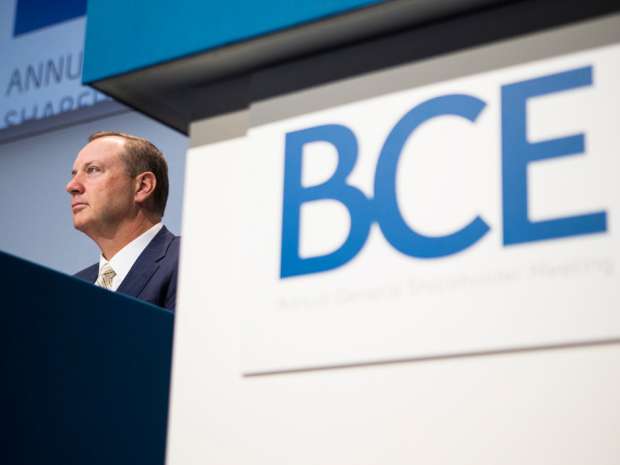Brexit Stage Left
On June 23rd, in a nonbinding referendum, British voters decided to leave the European Union (EU) by a roughly four percentage point margin. The vote, in our view, raises more questions for the “European project” than it resolves. We have long held the view that — regardless of the outcome — the EU is now in uncharted territory as a Pandora’s Box has been opened. We anticipate that other disaffected constituencies (Italy, France, the Netherlands, Denmark, Finland) within the bloc will also assert their desires to reassess their relationship with Brussels, particularly in the wake of the UK’s decision to leave. While we do not believe that all these countries will necessarily hold referenda, the political uncertainly will likely act as a weight on European risk going forward. As such, while investors may be focused on the immediate negative ramifications of Thursday’s vote, we view this development as a massive paradigm shift not only for Great Britain and the EU, but also for broader geopolitics and the global economy.
Global markets are currently dealing with the first derivative effects of the surprise result. This stage is concentrated on the UK and the immediate reaction in global markets. The second derivative effects, which we view as potentially more momentous over the long-term, are the impact on Europe and the broader global economy. It now appears that many of the tenets of free markets that have been the rules of global commerce for the past two decades may be receding. Much may depend on the dialogue between the UK and the EU. How those talks manifest will be crucial. If the EU takes a retaliatory or aggressive stance, it will likely be self-defeating.
Brexit concerns dominated global financial markets for much of the spring. Given the fact that many investors attributed a low probability to this event, particularly given the rally in recent days (markets followed disconnected bookmaker odds rather than the polls), we anticipate that global financial markets will be quite volatile in the near term. The overnight selling pressure in Asian trading is likely to cascade throughout other markets. Most acutely impacted will be UK assets, including the pound, equities, and corporate credit. In fact, sterling fell to more than a 30-year low against the dollar immediately after the referendum result was clear. Gilts may be the exception. We view the rally in the gilt, which accelerated as the votes were tallied, as a consequence of its safe-haven status among UK assets, relatively attractive yields, and – should it come to it – the backing of the Bank of England.
We expect broader equities, especially high-beta stocks, to suffer from the referendum’s final tally, as these securities provide the most liquid instrument for investors to express their concern over the outlook for the region. In early post-voting trade, equities sold off sharply. Banking stocks in particular — and not just in the UK – experienced a massive sell-off immediately after the vote. The slide in banking stocks will likely prolong depressed interest rate expectations that will inevitably arise. Given recent financial market history, investors are hard-wired to anticipate financial stress and contagion. However, it should be noted that banks and the financial sector as a whole are in much better shape during this test than they were during the height of the European monetary crisis: banks are far better capitalized today. Moreover, global central banking architecture, with abundant liquidity provisions, should ensure that a “Lehmanesque” moment is unlikely in the immediate future.
The effects on the euro, as well as European assets in general, will also be widespread. We anticipate that the euro will initially spike relative to the pound as investors abandon the UK. However, it will likely fall relative to safe-haven currencies like the dollar, yen and Swiss franc, as seen as the votes were counted. As the market moves past the initial shock of the UK’s vote, European assets will likely struggle as euroskepticism, or the opposition to the EU, will have increasing opportunities to manifest through various upcoming referenda and elections. Peripheral eurozone sovereign debt may sell off, to a degree, as their tenuous ties to the EU may be put to the test by speculators. Given the conflict between the safe-haven of Germany and the risk associated with peripheral Eurozone nations, we think it’s likely the euro loses any remaining “safe haven” status. In our view, the euro’s trajectory is less clear-cut than those of the dollar or yen and other safe-haven currencies.
In addition to the immediate ramifications of the vote, the entire Brexit process launched the concept of “a la carte” Europe, meaning that member states are now empowered to renegotiate certain aspects of their relationship with the EU. Over the medium term, we believe that this source of uncertainty will likely pose a significant risk for European assets. In question are key tenets such as fiscal integration, expanding the single-market for services, and the free movement of people, all of which impact the fate of the region’s economy and financial markets. Dissatisfaction with continued tepid economic growth and authorities’ handling of the ongoing migrant crisis only aggravate the picture. Sunday, June 26th, marks a reprisal of Spain’s late-2015 inconclusive parliamentary elections. The rise of the anti-austerity Podemos Party and, to a lesser degree, the centrist Ciudadanos, signifies a rejection of the status quo.
Even in Germany, the anti-euro and anti-immigration Alternative for Germany party has made inroads that would have seemed unthinkable only a few years ago. Crucial steps will come with Italy and France. The first significant test comes this autumn when Italy’s Prime Minister, Matteo Renzi, puts forth a referendum on constitutional reform. France will be next as Marine Le Pen’s National Front has positioned itself for a strong showing in the country’s presidential elections. In an interview with the Financial Times and again after the Brexit results were known, Ms. Le Pen called for a French referendum on its EU membership, raising the prospect of “Frexit,” just as Brexit may be put to rest.
For some time, the Janus International Investment team — comprised of members of our equity and fixed-income staffs — has been factoring in all possible outcomes. We are acutely mindful of the headwinds facing the UK and Europe and will remain vigilant in monitoring future developments on behalf of our clients.
Copyright © Janus Capital Group














